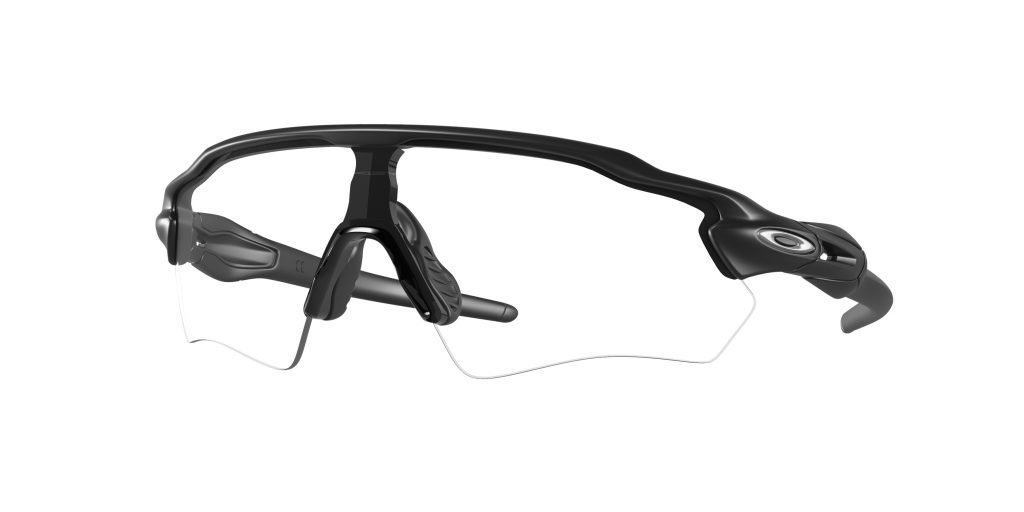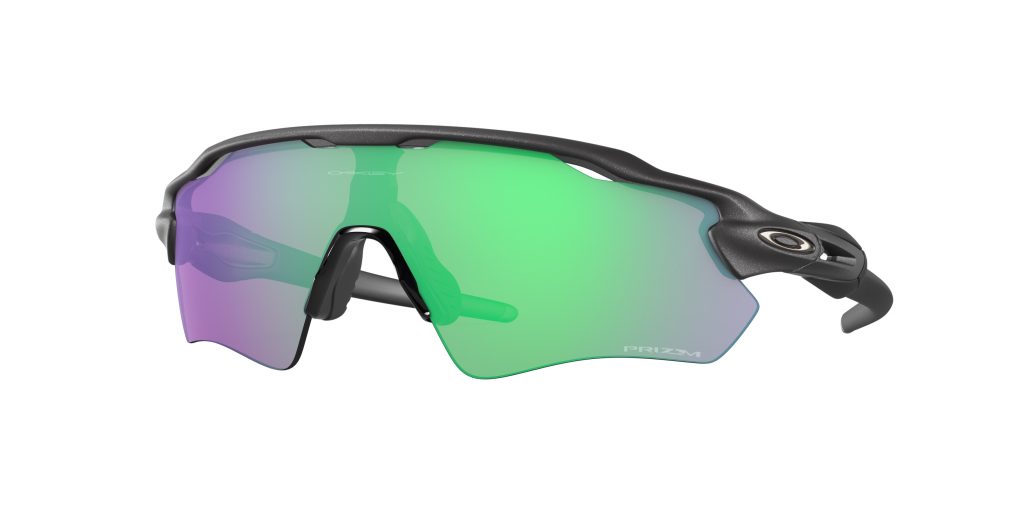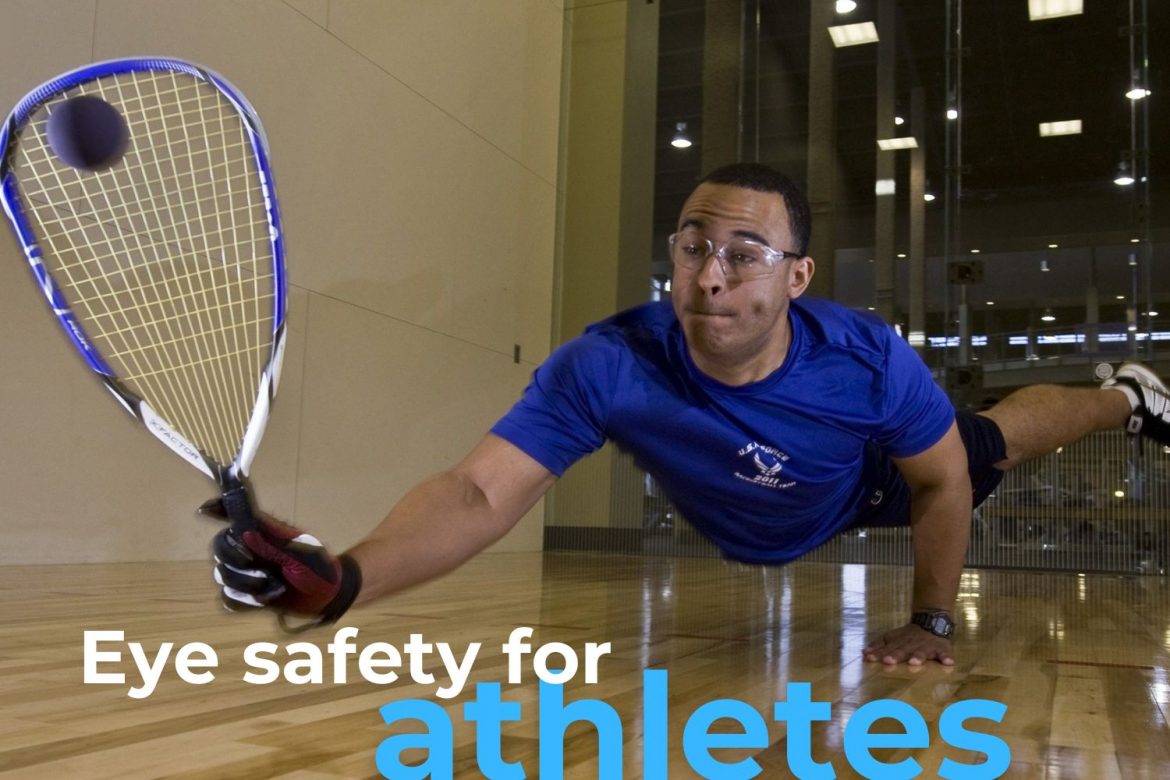![]()
When participating in sports, it’s easy to focus on improving speed, strength, or skill while overlooking one of the most important assets: your eyes.
Whether you’re a professional athlete or a weekend warrior, protecting your vision is crucial for optimal performance and long-term health. Injuries to the eyes can be severe and career-ending, yet they’re often preventable with proper care.
In this post, we’ll explore essential eye health and safety tips to help athletes maintain sharp vision and prevent injuries.
Understanding the risks: why eye safety matters
More than 40,000 sports-related eye injuries occur in the United States each year, many of which are severe enough to require emergency treatment. The risk varies depending on the sport, with certain activities like basketball, baseball, and racquet sports having higher injury rates.
Eye injuries can range from minor irritations to serious conditions such as detached retinas, corneal abrasions, and even blindness.
Common causes of eye injuries in sports:
- Blunt trauma
Blunt trauma from balls, elbows and other equipment can lead to eye socket fractures, retinal detachment, or internal bleeding. - Penetrating injuries
Sharp objects like fingers or sticks can cause lacerations to the eye. - UV radiation exposure
Outdoor athletes are particularly vulnerable to the harmful effects of ultraviolet (UV) rays, which can increase the risk of cataracts and other vision issues over time. - Dryness and irritation
Prolonged exposure to wind, water, and dirt can lead to chronic dryness and eye irritation, particularly in outdoor sports.
Wear proper eye protection

Wearing the appropriate protective gear is the most important step in safeguarding your eyes during sports. Sports goggles and face shields are designed to reduce the risk of injury while offering comfort and functionality.
Goggles
Polycarbonate lenses, commonly used in sports goggles, are highly impact-resistant and lightweight, making them an excellent option for eye protection. They can be fitted with prescription lenses if needed, allowing athletes with vision correction to play without compromise.
For sports like racquetball, soccer, and basketball, goggles that completely shield the eyes are critical. When purchasing, make sure they meet the safety standards set by the American Society for Testing and Materials (ASTM) for sports equipment.
Face shields
Hockey, football, and lacrosse players often require face shields, which protect the entire face from high-speed projectiles and physical contact. These shields, often made of polycarbonate, should be worn along with helmets to provide comprehensive protection.
It’s also helpful to look for protective gear with anti-fogging and UV protection features to maintain clear vision in challenging conditions.
Choose UV-protective eyewear for outdoor sports

Athletes who play outdoor sports, such as runners, cyclists, and golfers, are often exposed to harmful UV rays, which can damage the eyes over time. Long-term exposure to UV rays has been linked to various eye conditions, including cataracts, macular degeneration, and pterygium (growth on the white of the eye).
Key considerations for UV-protective eyewear:
- 100% UV protection
Ensure that your sunglasses block 100% of UVA and UVB rays. - Polarized lenses
These lenses reduce glare from reflective surfaces like water or asphalt, improving vision and reducing eye strain. - Wraparound frames
These frames offer extended protection by covering the eyes from multiple angles, preventing peripheral UV exposure. - Durable and lightweight material
Look for sports sunglasses made from materials like polycarbonate for impact resistance and comfort.
In addition to wearing sunglasses, consider wearing a cap or visor to block direct sunlight from hitting your eyes.
Stay hydrated
Dry eye is a common complaint among athletes, especially those who play outdoor sports or in dry, windy environments. When your eyes don’t produce enough tears or the tears evaporate too quickly, you may experience discomfort, blurred vision, or increased risk of injury.
Tips for preventing dry eyes:
- Use lubricating eye drops
Artificial tears can help maintain moisture levels, especially for those exposed to the elements. - Wear sunglasses or goggles
This helps protect your eyes from wind and dust, which can exacerbate dryness. - Stay hydrated
Dehydration can contribute to dry eyes, so make sure you’re drinking enough water, particularly during strenuous activities. - Take breaks from contacts
If you wear contact lenses, be mindful of how long you’ve had them in. Extended wear can lead to dryness and discomfort, so switch to glasses or give your eyes a break when possible.
Address contact lens concerns
For athletes who rely on contact lenses for clear vision, it’s important to follow best practices to prevent issues like infections, irritation, or dryness. Contact lenses offer advantages over glasses, such as wider peripheral vision and a reduced risk of fogging up or getting knocked off during play, but they require special care.
Tips for athletes who wear contacts:
- Use daily disposable lenses
These reduce the risk of infection, as you’ll be using fresh lenses every day. - Carry backup supplies
Always have a spare set of lenses or glasses on hand in case your contacts get damaged or dislodged during a game. - Keep your hands clean
Before touching your eyes or lenses, wash your hands thoroughly to reduce the risk of introducing bacteria to your eyes. - Use rewetting drops
These can help keep your eyes hydrated during long practice sessions or competitions.
If contact lenses are a regular source of irritation or discomfort, consider multifocal or specialty lenses designed for athletes, which offer improved comfort and performance.

Practice good hygiene to prevent infections
Athletes are often exposed to environments that can increase the risk of eye infections, such as swimming pools, locker rooms, and outdoor fields. Bacterial, viral, and fungal infections can lead to conditions like conjunctivitis (pink eye) and keratitis, which can be serious if not treated promptly.
Tips for preventing eye infections:
- Wear swimming goggles
Chlorinated water and bacteria from pools, lakes, or oceans can irritate your eyes and lead to infection. Always wear properly fitted goggles to keep your eyes protected. - Don’t share eye gear
Sharing goggles, towels, or face masks can transfer bacteria, so keep your equipment personal. - Disinfect your gear
Regularly clean and disinfect your protective eyewear to remove bacteria, sweat, and debris. - Remove contacts before swimming
Water can trap bacteria against your lenses, increasing the risk of infection. Wear goggles or remove your contacts before hitting the water.
Be cautious with eye injuries
Immediate attention to any eye injury is critical. Athletes sometimes try to push through the pain or ignore symptoms, but this can lead to long-term damage. Some injuries may not show immediate symptoms but can still cause serious problems if untreated.
What to do if you experience an eye injury:
- Don’t rub your eye
Rubbing can worsen the damage, especially if there’s a foreign object in your eye. - Seek medical attention
If you experience blurry vision, pain, or swelling after an impact, consult a healthcare provider immediately. - Use cold compresses for swelling
For blunt trauma, apply a cold compress to reduce swelling and pain, but avoid putting pressure directly on the eye.
Maintain a healthy diet for optimal eye health
Good nutrition plays a significant role in maintaining eye health. Athletes need a diet rich in specific vitamins and nutrients that support vision, especially given the physical demands placed on their bodies.
Essential nutrients for eye health:
- Vitamin A
Found in carrots, sweet potatoes, and leafy greens, this vitamin is essential for maintaining good vision and helping to prevent night blindness. - Omega-3 fatty acids
These healthy fats, found in fish like salmon and tuna, help prevent dry eyes and promote overall eye health. - Lutein and zeaxanthin|
These antioxidants, found in leafy greens, eggs, and corn, can protect the eyes from harmful light and reduce the risk of cataracts. - Vitamin C and E
Found in fruits like oranges and berries, these vitamins support healthy blood vessels in the eyes and may reduce the risk of age-related conditions like cataracts and macular degeneration.
Safeguard your vision for peak performance
For athletes, eye health is an essential part of overall performance and well-being. By wearing the right protective gear, keeping your eyes hydrated, practicing good hygiene, and maintaining a healthy diet, you can reduce the risk of injury and keep your vision sharp. Whether you’re on the field or in the pool, these tips will help you stay focused while ensuring long-term eye health.

